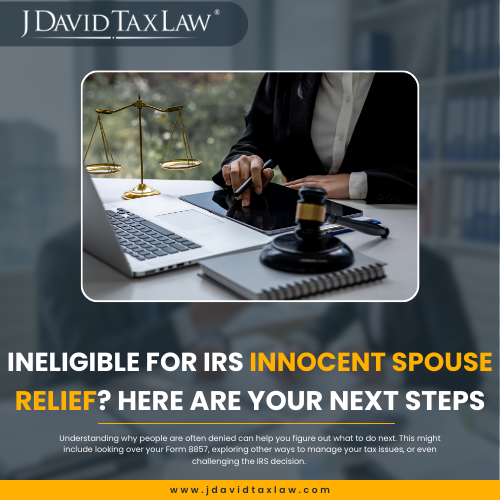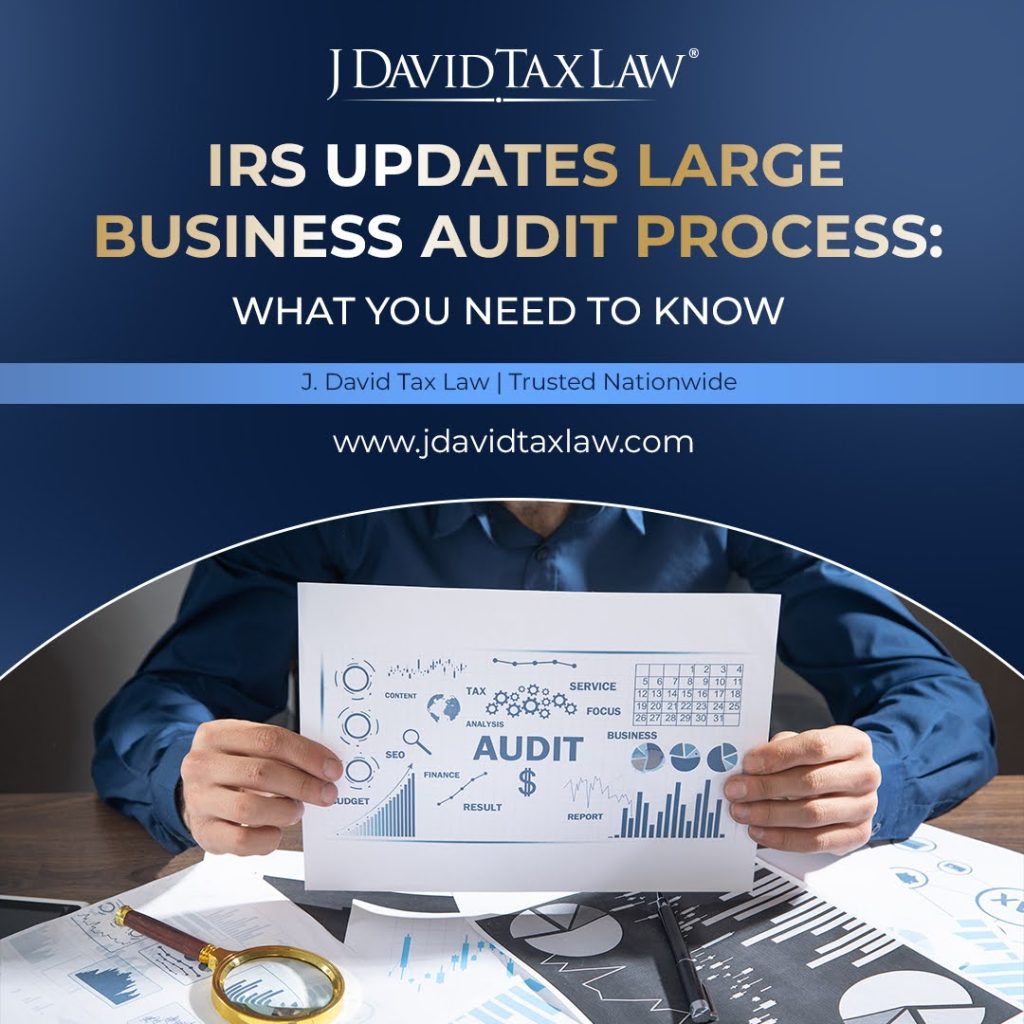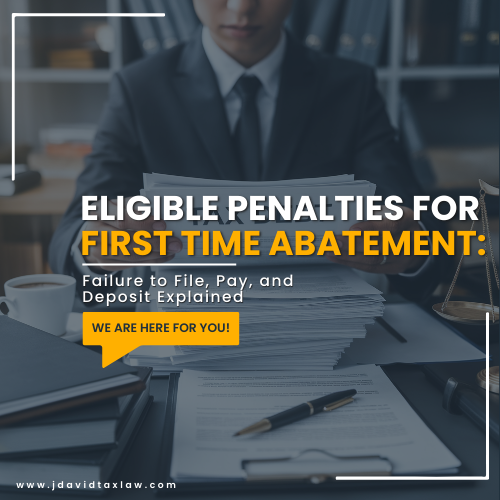Foreign bank accounts have become a high-profile topic in America. The IRS works diligently to correct the large compliance gap from unreported Foreign Bank Accounts, and they get help from Foreign Banks to do it.
The following article features some common questions we receive regarding Foreign Bank Accounts and the IRS filing requirements. If you are unsure if you should file an FBAR for 2019 or if the IRS has contacted you regarding a previous FBAR filing, the tax attorneys at J David Tax Law can help. Click here to request a consultation.
Questions & Answers About Foreign Bank Accounts
![]()
When did Foreign Bank Account Reporting become a law?
In 2010, the Foreign Account Tax Compliance Act (FATCA) was passed making it a federal law for all US citizens living in America or abroad to file a foreign bank account annual report called an FBAR filing.
![]()
Do Foreign Banks actually report to the IRS?
Yes, FATCA also included the requirement for foreign financial institutions to begin reporting on July 1, 2014 all accounts held by US Citizens. Even if you miss your FBAR filing, the IRS will know you have a foreign bank account because your bank will be required to tell them you have it.
![]()
What are the FBAR Filing requirements?
If your accounts reach a combined total of more than $10,000 at any time during the year, you must file Form 114. The form is filed with Financial Crimes Enforcement Network (FinCEN), a division of the Treasury Department at the same time you file your taxes each year. Depending on the total of your accounts, you may also be required to file Schedule B and Form 8938. Learn more about the Filing Basics on our FBAR Practice Areas Page.
![]()
What happens if I missed my FBAR Filing deadline?
Don’t wait for the IRS to contact you! Taking action before receiving a notice from the IRS could save you a lot of money and grief.
Since 2015, the IRS has been able to mine the data they receive from Foreign Banking Institutions to identify taxpayers who miss their FBAR filing deadlines. For American taxpayers holding money overseas, the clock is ticking if you have not been filing your reports. Failing to report your foreign bank accounts when you file your taxes each year could earn you penalties up to 50% of your account value on the date the report was due, however, if you are determined to be non-willful in your FBAR filing, the penalty could be less, up to $10,000 per occurrence. What you say to the IRS and how you file your reports can impact whether you are considered willful or non-willful, so it is important to work with experienced professionals like the tax attorneys at J David Tax Law.
![]()
Should I just start filing my missed reports?
If you missed your FBAR filing requirements, we strongly advise you to seek professional advice from the Tax Attorneys at J David Tax Law. You can incur penalties for missing one detail in your report. It can also trigger an IRS investigation if you start filing missed reports. Our tax attorneys can help guide you through the process step by step.
![]()
Are there programs or payment plans that can help?
To be eligible for programs like the Offshore Voluntary Disclosure Program and Streamlined Disclosure, taxpayers must act quickly. If the IRS has begun enforcement action against you, it may cause you to become ineligible and/or your foreign bank could get added to an IRS list that requires a higher offshore compliance penalty.
If you missed your FBAR filing or you are being aggressively pursued by the IRS for failure to file your FBAR filing, our tax attorneys can help.
![]()




















